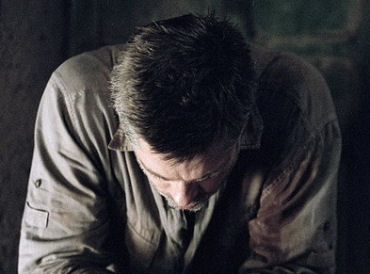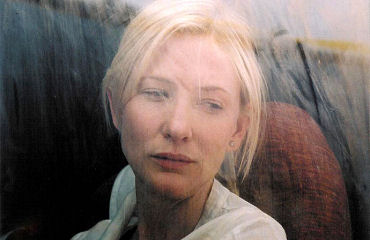“Babel is a masterpiece….a brilliant, profound and devastating film that explores the dangers and consequences of what can happen when words fail, communication ceases and all you’ve got left are feelings,” says New York Observer critic Rex Reed, whom I respect for having laid his always-passionate, sometimes fierce opinions on the line for the last 40-something years.

“One tragic incident may have shock waves around the world, but in Babel the inability to communicate — between cultures or even within relationships — forms the basis of an astonishing series of interwoven stories covering the globe in ways that make you think and empathize. It is filled with haunting elements of pathos, integrity, beauty, grace and terror that are quite simply transcendent. We have two months to go, but at this point, in my opinion, I consider Babel the best film of 2006.”
Reed and I have obviously parked our bicycles in the same rack, but there’s a modest amount of dissent out there. Roughly a quarter of the critics are either scratching their heads or hocking lugies. (It’s running about 5 Rotten Tomato points higher than Flags of Our Fathers and Catch a Fire.) But let’s also note that a film up to something extra and exceptional probably isn’t worth its salt unless it’s irritating or confounding a certain percentage.
A critic friend was asking me last weekend about the “what” of Babel, which he couldn’t quite get his head around. I trotted out the old interconnectivity thing, which is that we’re all ping-pong balls sitting on sprung mousetraps, and that the rule of our communal existence is that one reaction is always begetting another, blah, blah. (Familiar but undeniably true and tragic.) I also mentioned the Alejandro Gonzalez Innaritu line about the things that bind everyone the world over are the ones that give grief, and of course the constancy of parenting and children.
But the real payoff, for me, is the scent of intrigue without any explicit maps or position papers. The universals in the particulars. An unmistakable presence of currents without knowing their precise speed and direction, or even being able to spot each and every piece of debris being carried along.

My general rule of thumb is, a good film doesn’t have to add up like the price of groceries. There are few if any explanational “what’s” in Michelangelo Anton- ioni‘s films, after all. Substance isn’t necessarily something you can detect by breaking down the components and pouring them from one beaker into another.
And it doesn’t bother me in the least if Babel uses the same type of story structure that Amores perros and 21 Grams ran with. I’m amazed that some people are calling this a nagger.
I’m heartened, in any case, that Reed has mentioned the Brad-and-Cate peeing scene as one of the emotional high points. “Blanchett’s diversity is a matter of record,” he acknowledges, “but nothing will prepare you for the power and depth of Pitt’s gut-wrenching performance as the brave, fiercely protective and helpless husband. There’s one scene, where he covers his wife from the prying eyes of African children and helps her pee into a pan in the dirt, that will either move you to tears or remind you that you need to see a shrink.”
I’ve seen Babel three times, and I could easily catch in another couple of times because it’s so well crafted and so immensely watchable. You’ve heard that line hundred of times so wave it away if you choose. You can wave Babel away and call it tiresome and over-rated, but at least check it out and think it through. It opens semi-limited on Friday (10.27) and expands a week or so later.
